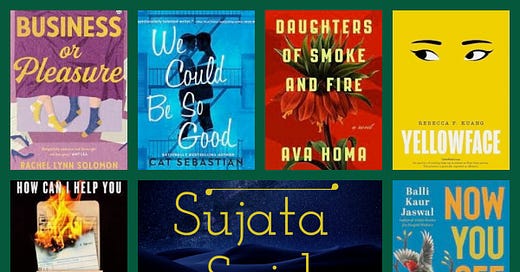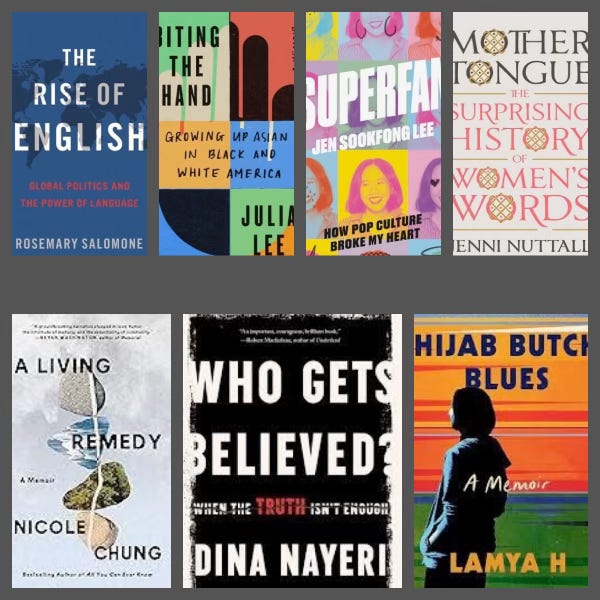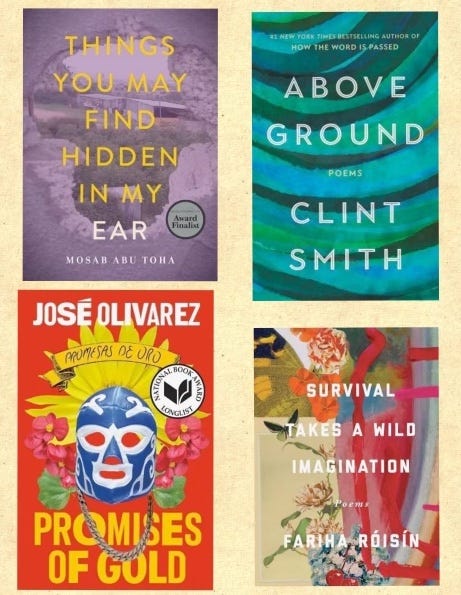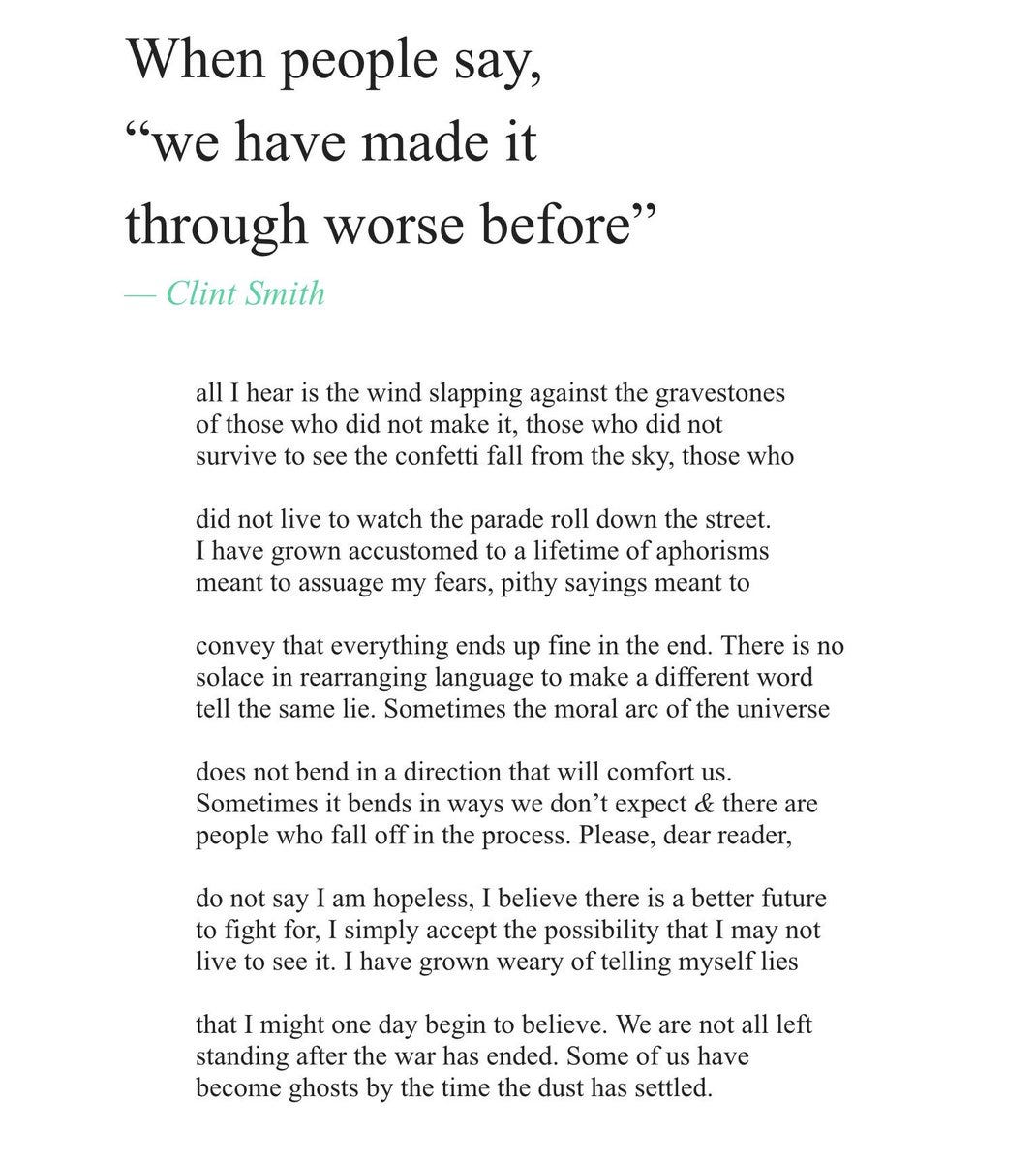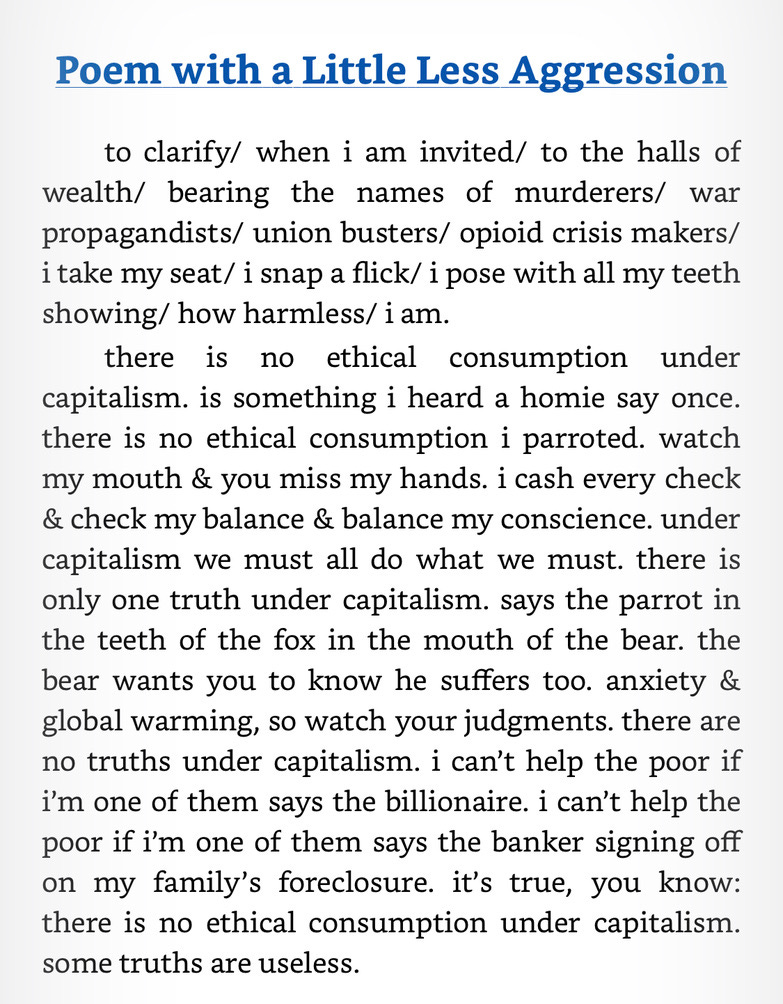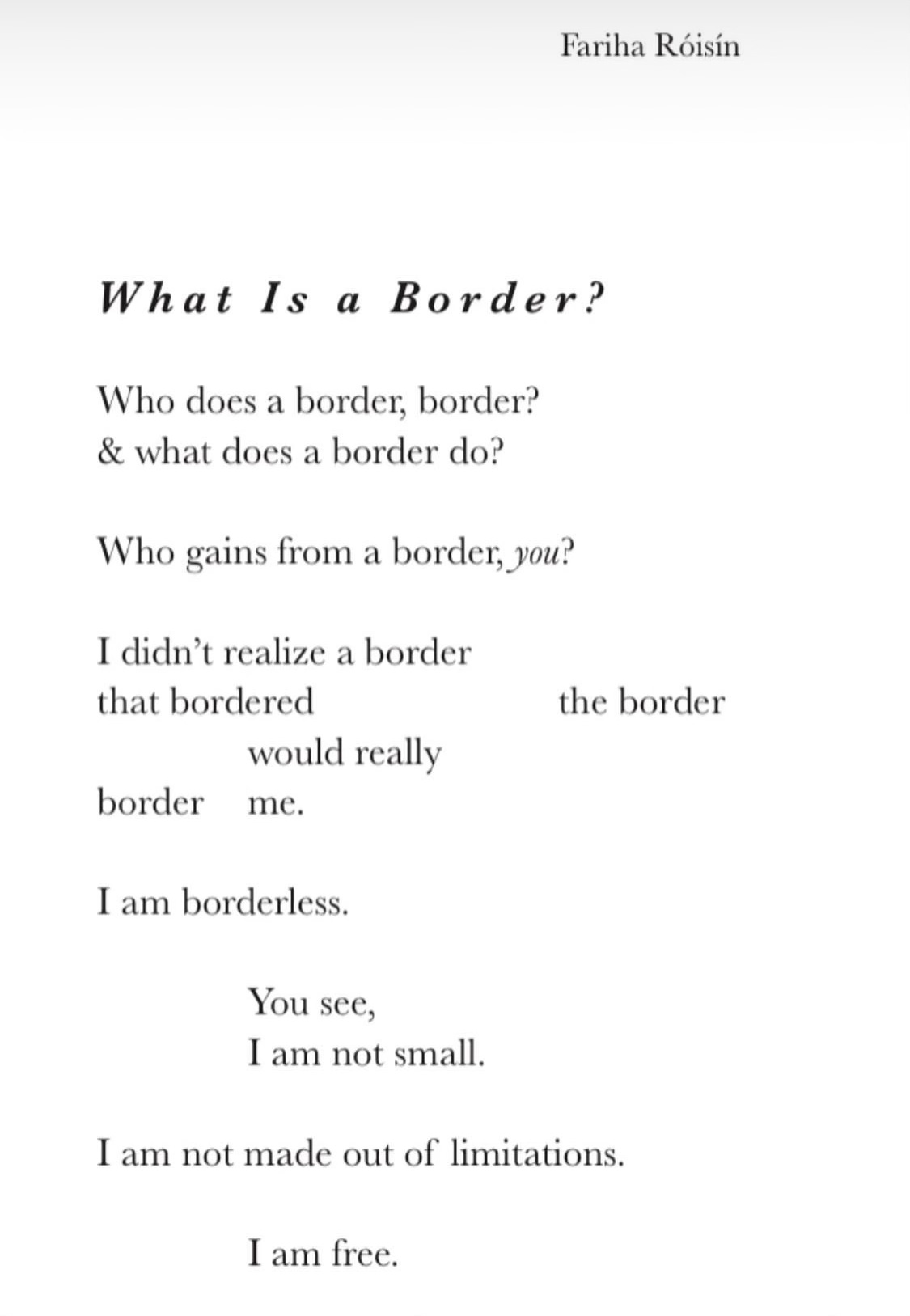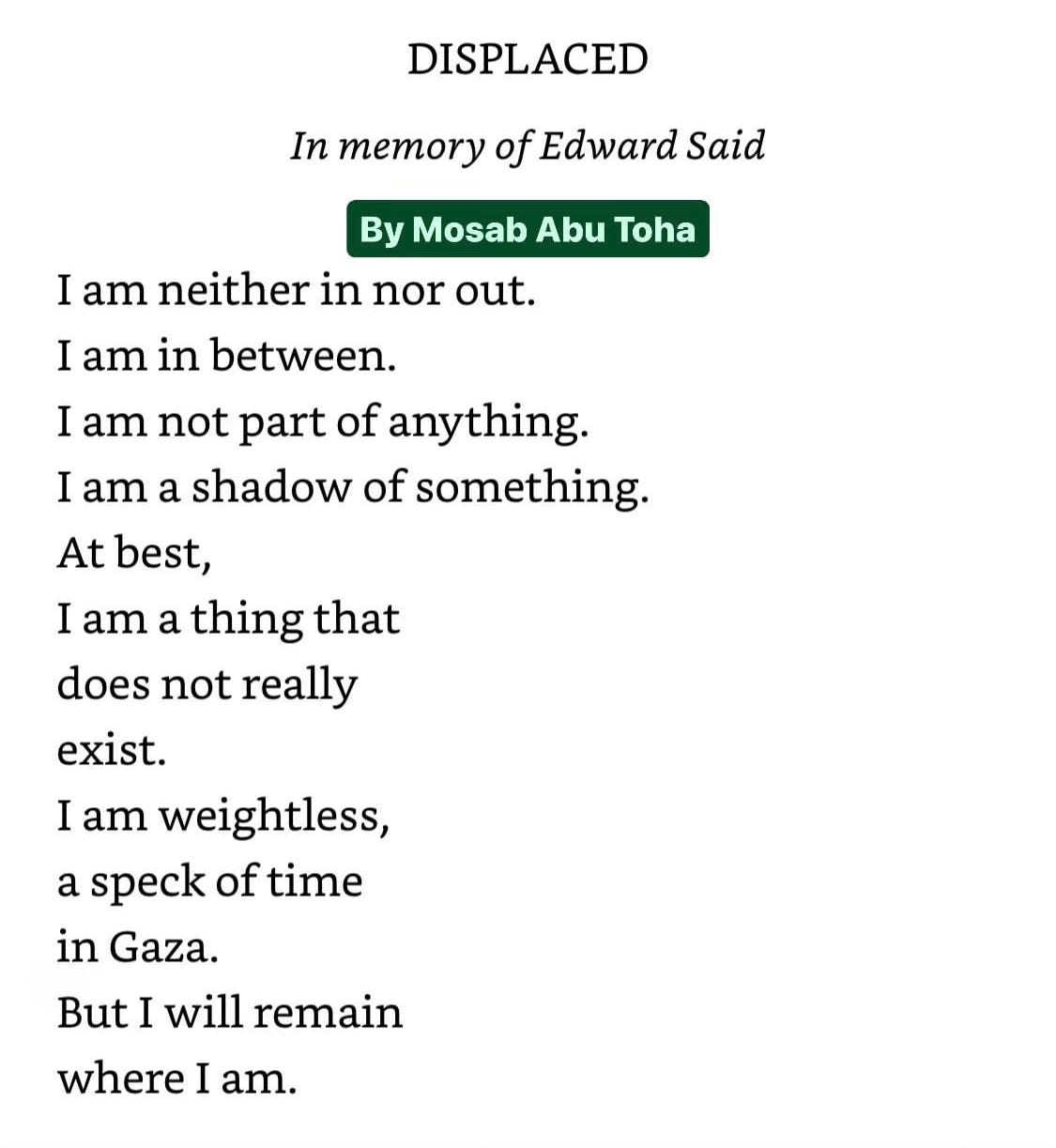Today marks the first anniversary of Sujata Said...I appreciate your reading and sharing my newsletter and recommendations and offering additional suggestions for me to enjoy! I also appreciate the friends who encouraged me to do it - it has changed my relationship in a positive way with writing, and I’m grateful!
You can look at this link to see which posts had the most engagement in our first year. It’s not surprising to me that you tend to engage most with posts that offered opportunities to support communities and people dealing with tragedy and recovery, and with support and appreciation for My Brilliant Friends. I hope you’ll continue to engage with Sujata Said… and I hope that 2024 brings more peace, justice and equity for all.
BOOKS
FICTION
Age of Vice (कलियुग) by Deepti Kapoor: This is a very long crime and corruption novel that takes place in modern India, told from multiple perspectives. It’s the beginning of a trilogy. And while it ended abruptly (perhaps in prep for the 2nd book), I still liked it!
The Bandit Queens by Parini Shroff: This is about a woman who is rumored to have killed her husband (she didn’t) but other women in her village’s micro-loan group ask her to help them “deal” with their abusive husbands. It was tense and mysterious, but I also found myself laughing a lot. It’s about finding your tribe and on the real real about what it is to live as a woman in this village, and the world. And I loved how it took on patriarchal parts of the Ramayana (all of them)! The name of the novel is rooted in the real life of Phoolan Devi, known as the Bandit Queen.
Business or Pleasure by Rachel Lynn Solomon: This romance was good on its own, but it also took on sex positivity and flipped the trope of the inexperienced women and experienced man, and in doing so made both leads open, vulnerable, funny.
Daughters of Smoke and Fire by Ava Homa: A novel focused on a young woman and her Kurdish family throughout the recent past and present. This is the first novel published in English by a female Kurdish writer. We get a few perspectives in this novel, but it’s mostly from Leila and Chia (her brother) POV.
Dearborn by Ghassan Zeineddine: It’s been hard in the past for me to get into short story collections but in the past few years, I have really liked a few and Dearborn is one of those. It was so easy to read each story and the writing was smooth and painted great pictures of a community throughout the separate stories. All about the Arab-American communities that have made their home in Dearborn, MI and so many different perspectives and stories across the community. Truly, I laughed, cried and cringed!
Lush Lives by J. Vanessa Lyon: One of the first books from Roxane Gay’s imprint, Lush Lives is hard to categorize, which makes it good. The characters are having in a romance but also it’s a real estate thriller (new genre alert!), and about figuring out your place in the world, society and in your family.
Now You See Us Balli Kaur Jaswal: This was a great stand alone mystery and a good reflection of the life of the service class of “helpers” in Singapore who serve upper and middle class of families - the majority of whom are Filipino. I wanted to know who “did it” in the mystery, while at the same being drawn in by their individual lives and the every day indignities they face, and so annoyed/angered at how these folks are treated. This author also wrote Erotic Stories for Punjabi Widows which was quite popular, but I liked this one more!
How Can I Help You by Laura Sims: This is a librarian thriller (new genre alert!) and I really enjoyed it. I can’t say too much without spoiling so if you like libraries and/or books and mystery thrillers, this is for you.
We Could Be So Good by Cat Sebastian: This mid-century (20th century) story about two men falling in love and figuring it all out, along with major class differences, was a joy to read. Sebastian has always been a favorite author of mine, and continues here.
Yellowface by RF Huang: If you are fan of historical fantasy, you already know and likely love Kuang for Babel and The Poppy War series - these are not my genre so Yellowface is my first exposure to Kuang, and it is so good! It’s both a thoughtful and easy read - a thriller, a book about the publishing industry, and about racism and representation and the ridiculousness of all the things.
NON FICTION
Biting the Hand: Growing Up Asian in Black and White America by Julia Lee: I was both taken aback by and related to the anger and rage in the first part of the book. I appreciated the history I learned in the book AND that Lee chose to connect the Asian American experience not only to Asian American thinkers, writers and activists but Black and Indigenous thinkers, writers and activists as well. The author’s parents were ”survivors of the Korean War, owned a liquor store in Inglewood, Calif., and then a fast-food chicken joint in nearby Hawthorne. The latter business was heavily damaged in the 1992 Los Angeles uprising, when Lee was 15.”
Hijab Butch Blues by Lamya H: Lamya H is a pseudonym, and in this memoir, shared their experiences growing up in Middle East as a South Asian Muslim family, which is almost last on the social/human rights ladder there, to coming to the U.S. and learning about the social ladder here, while also acknowledging and coming out as Queer. I really loved how Lamya took stories and readings from the Quran throughout to reflect on key moments in life- very moving and thought provoking.
A Living Remedy by Nicole Chung: Chung’s first memoir All You Can Ever Know is one of my favorite books, written about her experience as a Korean adoptee of white parents and searching for her bio-family as she started her own family. A Living Remedy was originally supposed to be about the death of her father - and the systems of economy, health care, and the United States’ singular approach to all of it, that led to his death at 67. But while writing it, her mom got sick and died and pandemic happened. This book is honest, raw, sweet and so much more. The title of the book comes from a Marie Howe poem, For Three Days, “because even grief provides a living remedy,” and I think about the truth of this everyday when dealing with grief. At her book launch in NYC she said she wanted to write a book that folks could “keep company with.” She succeeded.
Mother Tongue: The Surprising History of Women’s Words by Jennie Nuttal: This was one of three books I read this year about language, its history, and its power in gender and global political wars. Mother Tongue takes on all the many words (English) that describe, surround, and define (for good and bad) women, especially as until recently all dictionaries were written by men. She is an engaging writer, and the book was also fun to read. The structure of the book was brilliant - it is in sections about menstruation, lust, reproduction, nurturing, working and aging. As the Washington Post review says, “I now know quite a bit. “Vagina” derives from the Latin for “scabbard.” Realdo Colombo, an Italian anatomist, so described it in the textbook he penned in 1559: the place where the penis enters “as if into a sheath.””
“With painstaking detail, Nuttall chronicles how language controlled by men — the writers of dictionaries, after all, while women’s words for themselves rarely made it into print — codified ideas about women’s behavior and lives. They hardened stereotypes into words, overlaying corporeal reality with euphemism in the name of propriety. She notes that “caring, motherhood and maternity … are not exact synonyms,” though the keepers of linguistic meanings might want them to be. And, oh, the classism of the elite male definers! For instance: The jobs of low-status women were often synonymous with those of “loose women” — such as “wench,” which could refer to both a young female servant and a sex worker.” - ‘Mother Tongue’ offers a fascinating look at how we talk about women
The Rise of English: Global Politics and the Power of Language by Rosemary Salomone: The seconf book I read about language this year, this has an excellent foundation in history, politics, colonialism (of the church and of nations) in how English grew and expanded and what it means NOW both in the context of US and UK (post Brexit) and in economic and global international power. Case Studies focus on Rwanda, Netherlands, and India. Much time is also spent on French and Chinese and how France and China are investing to keep their languages thriving in a key part of the globe for economic and political power (Africa).
Superfan: How Pop Culture Broke My Heart: A Memoir by Jen Sookfong Lee: This pop culture/ memoir wasn’t something I expected to love but I should have known better! Lee’s stories of how pop culture (movies, books, music, and more) kept her going when she was growing up, helped her focus was so familiar to me. As was her disillusionment as she grew up and struggled with how much of what she loved and considered “forever relationships” actually was reaffirming and/or creating biases and prejudices. The essays are funny, moving, smart and connected in ways that I think anyone could appreciate.
“I used pop culture … as a kind of glue to hold me together when I was hurtling through disaster.” - Jen Sookfong Lee
Who Gets Believed by Dina Nayeri: I loved Nayeri’s novel Refuge so I def wanted to read this non-fiction book around who gets believed, especially in refugee and asylum cases. I was pretty taken with how McKinsey and Harvard Business School folks are believed in even the most impossible situations (and trained on how to do this to raise money and talk to investors), when refugees and asylum seekers are not and in fact asked to prove and prove and jump through hoops over and over again in the process. Nayeri’s stories range from her church and who they believed had spoken to God or not to her family’s struggles with mental health and suicide to her time in business consulting and talking to asylum seekers.
POETRY
Above Ground by Clint Smith: Clint Smith is a wonderful and talented writer and poet, and observer of history and society. One of my favorite poems (see below) of recent memory is part of this collection: “When People Say ‘we have made it through worse before,’” was released in 2019 and spoke to me so deeply, I continue to return to it, especially as we continue to work for a more peaceful and equitable world - especially the line “I believe there is a better future to fight for, I simply accept that I may not live to see it.” I also highly recommend his non-fiction book How the Word is Passed: A Reckoning with the History of Slavery Across America and his YouTube all-age educational series, Crash Course: Black American History with Clint Smith for factual, contextual and easy to understand Black American History.
Promises of Gold by José Olivarez: A friend introduced me to Olivarez by gifting me his Citizen Illegal collection a few years ago and I’ve been a fan since. This new collection is wonderful, funny, and moving, and in my opinion, a love letter to the men in his life. Also the entire collection is printed in English and Spanish and the letter from the translator was amazing to read on its own.
Survival Takes a Wild Imagination: Poems by Fariha Róisín: Róisín is a writer and poet and this collection was quite striking to me. She has been a culture critic and is an artist herself, and her 2022 book, Who Is Wellness For?: An Examination of Wellness Culture and Who It Leaves Behind is now on my TBR list for 2024.
Things You May Find Hidden in My Ear: Poems from Gaza by Mosab Abu Toha: You may have heard of Toha recently as a Palestinian poet who was kidnapped by Israel forces, stripped and beaten while in detention as he tried to migrate with his family. This collection was very strong and I also encourage you to listen to his reflections on his detention.

